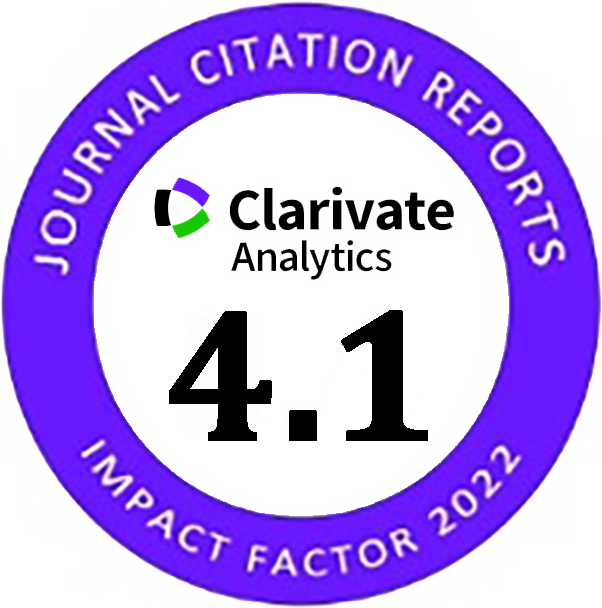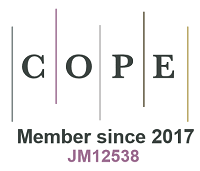City as Habitat; Assembling the Fragile City
Abstract
The African continent is urbanizing at a breakneck pace and our cities are in a state of crisis. The causes may vary, so also is the degree of severity, but there is a widely felt sense of urban problems requiring urgent solutions. The nature of the problems is complex, with economic, social, educational, political and physical factors playing major roles in exacerbating the situation. Yet, whatever is perceived to be the most serious physical problems in a city, one key underlying question always present is: What can be done about the disaffection of people for their own urban environments? This issue of fragility may be seen in simple terms of a drop in the perceived desirability of the city as a place one can to live, work or shop in. Whatever the name, the fact is that too many Nigerian cities are becoming unattractive to many citizens and residents. This paper aims at identifying the various ways of assembling a fragile city. Through the review of existing literature, the paper highlights the causes of city fragility focusing on three Nigerian cities. It also discusses fragility as the main hurdle to implementing Sustainable Development Goals and how fragile situation birth architecture of fear. Then, it concludes by noting that developing nations in sub-Saharan Africa, including Nigeria need to be proactive in deconstructing their fragile cities.
Keywords
References
R. Muggah, “Development specialists must get to grips with fragile cities.” Article prepared specifically in support of the: Cities, Violence and Order project of the Institute for Development Studies at the University of Sussex, U.K. 06 January 2016.
T. Smith, Opinion: How to build a 'smart city' in a fragile and conflict-affected context. (2017) Available online: https://www.devex.com/news/opinion-how-to-build-a-smart-city-in-a-fragile-and-conflict-affected-context-89552 (accessed on 4 October 2019).
United Nations University, Resilience and the Fragile City. Institute of Unu-Cpr. Project research by John de Boer 2016/12/31.
Udeh C. A and Okeke F. O., “Urban Regeneration – Eradicating Urban Decay for Improved Human Settlement.” Journal of Environmental Management and Safety 9, no. 1 (2018): 49– 54.
D. Balthasar States of fragility: Where to in 2019? Policy Brief. 02/2019 Available online: https://www.swisspeace.ch/assets/publications/downloads/Policy-Briefs/64b40447c3/State-of-fragility-Policy-Brief-2-2019.pdf
Fukuyama, Francis. “The Imperative of State-Building.” Journal of Democracy 15, no. 2 (2004): 17–31. doi:10.1353/jod.2004.0026.
Independent Commission on Multilateralism, Fragile States and Fragile Cities Discussion Paper November 2015 Available online: www.icm2016.org (accessed on 2 October 2019).
Chris van der Borgh A fragile concept – Donors and the fragile states agenda 28 July, 2008. Available online: https://www.thebrokeronline.eu/a-fragile-concept-d46/ (accessed on 2 October 2019).
African Development Bank, High-Level Panel on Fragile States to Launch Report on Ending Conflict and Building Peace in Africa Addis Ababa, Ethiopia (2014).
Asian Development Bank, Fragility Index for a Differentiated Approach 2014. Available online: https://www.adb.org/publications/fragility-index-differentiated-approach (accessed on 2 October 2019).
OECD, DAC. "Fragile States 2013: Resource flows and trends in a shifting world." (2013).
UK Department for International Development DFID, 2010 Global Issues: “Fragile States,” Available online: http://webarchive.nationalarchives.gov.uk/+/http://www.dfid.gov.uk/Global-Issues/How-we-fight-Poverty/Government/Fragile-States/ (accessed on 20 April 2019).
Diaconu, Karin, Jennifer Falconer, Nicole Vidal, Fiona O’May, Esther Azasi, Kelly Elimian, Ibrahim Bou-Orm, Cristina Sarb, Sophie Witter, and Alastair Ager. “Understanding Fragility: Implications for Global Health Research and Practice.” Health Policy and Planning 35, no. 2 (December 10, 2019): 235–243. doi:10.1093/heapol/czz142.
OECD. “States of Fragility 2016” (November 30, 2016). doi:10.1787/9789264267213-en.
OECD. “States of Fragility 2018” (July 17, 2018). doi:10.1787/9789264302075-en.
Ziaja, Sebastian, Jörn Grävingholt, and Merle Kreibaum. “Constellations of Fragility: An Empirical Typology of States.” Studies in Comparative International Development 54, no. 2 (May 24, 2019): 299–321. doi:10.1007/s12116-019-09284-3.
Muggah, Robert. “Deconstructing the Fragile City: Exploring Insecurity, Violence and Resilience.” Environment and Urbanization 26, no. 2 (May 16, 2014): 345–358. doi:10.1177/0956247814533627.
World Bank’s list of fragile situations Harmonized List of Fragile Situations Fy14 (2014). Available online: http://siteresources.worldbank.org/EXTLICUS/Resources/511777-1269623894864/HarmonizedlistoffragilestatesFY14.pdf (accessed on 2 October 2019).
UNDP International Consultant to Study of Impacts of Climate Change and Disasters on Health in Urban Areas, Ethiopia. (2010). Available online: https://uncareer.net/vacancy/international-consultant-study-impacts-climate-change-and-di (accessed on 9 October 2019).
World Population Review, Population of Cities in Nigeria 2019. Available online: http://worldpopulationreview.com/countries/nigeria-population/cities/ (accessed on 20 April 2019).
UN World Urbanization Prospects, these are Africa’s fastest-growing cities. The World Economic Forum on Africa (2014). Available online: https://www.weforum.org/agenda/2016/05/these-are-africa-s-fastest-growing-cities/ (accessed on 1 October 2019).
F. O. Okeke, F. I. Okeke, and C. G. Sam-Amobi, “Building Collapse in Nigeria and Development Control, the Missing Link.” West Africa Built Environment Research (WABER) 2019 Conference Proceedings (August 5, 2019): 242-256. doi:10.33796/waberconference2019.17.
Egbokhare, Francis O., and S. Oluwole Oyetade, eds. “Harmonization and standardization of Nigerian languages.” No. 19. CASAS, (2002).
National Population Commission of Nigeria (web), National Bureau of Statistics (web). (2017). ENUGU State in Nigeria. 2020-03-03.
E. Sonnie, Menace of Fulani Herdsmen; Government could do better in containing the activities of the herdsmen, argues THISDAY Newspaper 12 Oct 2016.
Dankani, I. M. "Affordable Housing Provision in Kano North Western Nigeria: The Imperative for the Creation of Sustainable City." International Journal of Management and Social Sciences Research 2, no. 8 (2013): 189-198.
Okeke, F O, I G Chendo, and C G Sam Amobi. “Resilient Architecture; a Design Approach to Counter Terrorism in Building for Safety of Occupants.” IOP Conference Series: Materials Science and Engineering 640 (November 13, 2019): 012003. doi:10.1088/1757-899x/640/1/012003.
N. Ellin, & E. J. Blakely, Architecture of fear. New York: Princeton Architectural Press. (1997).
D.K. Seth, Fragility the Main Hurdle to Implementing SDGs. (2015) IPI global observatory. Available online: https://theglobalobservatory.org/2015/09/sustainable-development-goals-united-nations-fragile-states/ (accessed on 17 September 2019).
DOI: 10.28991/cej-2020-03091536
Refbacks
- There are currently no refbacks.
Copyright (c) 2020 Francis Okeke, Ibem Eziyi, Clifford Udeh, Emmanuel Ezema

This work is licensed under a Creative Commons Attribution 4.0 International License.






